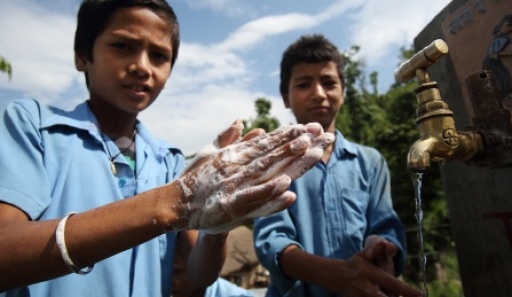Innovative Program Launched to Address Global Health Inequities
The University at Buffalo (UB) has introduced a groundbreaking Master of Science in International Development and Global Health (MSIDGH) program to support the United Nations Sustainable Development Goal of achieving global health equity by 2030. This interdisciplinary program aims to address the widening gaps in human health across the globe by focusing on the socioeconomic, environmental, and geopolitical aspects of international development.
The MSIDGH is designed to reimagine the global health landscape and redefine the approach to health inequities. Emmanuel Frimpong Boamah, associate professor and interim chair of the Department of Urban and Regional Planning and director of the program, states, “Through interdisciplinary and experiential learning, the MSIDGH will prepare students as agile problem-solvers attuned to the path-dependent, broken, and unjust systems behind global health disparities.”
Facing Complex Challenges in Global Health Inequity
Global health inequity is influenced by various complex factors such as water stress, poor sanitation, inadequate housing for refugees, drug-resistant pathogens, and the rise of novel viruses. These challenges require coordinated action across different sectors and scales. The root of the problem lies in political, legal, economic, and social systems that exclude marginalized populations from power and resources, particularly in postcolonial and settler-colonial contexts in the Global South.
An Innovative Approach to Education and Training
Leaders of UB’s MSIDGH program believe that tackling these multifaceted challenges requires a new approach to education and training. The program breaks down disciplinary and industry silos and focuses on questions of social justice. Hosted jointly by UB’s schools of Public Health and Health Professions, and Architecture and Planning, the MSIDGH provides diverse coursework on topics such as refugee health, the politics of water, epidemiology and infectious disease, the built environment and health, and environmental planning. A unique aspect of the program is a semester-long field placement where students will engage directly with community stakeholders in different global settings.
Opening Doors to Diverse Backgrounds
The MSIDGH program is open to students from any undergraduate major, with a particular focus on those with backgrounds in public health, environmental design, and international development. It also serves as a post-professional path of study for professionals working in the global health and international development sectors. Starting in fall 2023, the MSIDGH is the culmination of UB’s nearly decade-long efforts in global health equity research, education, and community engagement.
An Interdisciplinary Approach to Research
The MSIDGH builds upon the success of UB’s Community for Global Health Equity (CGHE), which brings together experts in health sciences, architecture, urban planning, engineering, and social work to develop innovative policy solutions for global health equity. The program integrates CGHE’s collaborative model and offers opportunities for students to align their field experiences with ongoing research in diverse global settings such as Ghana, Kashmir, Bangladesh, Uganda, Nepal, Jamaica, and Colombia.
Promoting Mutual Learning and Collaboration
The MSIDGH program emphasizes the importance of local knowledge and community-driven research in addressing global health inequity. Students will have a month-long study period in Buffalo before their field experience, enabling them to understand problems in an interconnected way. The program also focuses on the legacies of colonial policies as structural barriers to global health equity. Lectures and visits from global practitioners will foster organic dialogue and critical thinking within each cohort.
Preparing Graduates for Impact
Upon completing their field work, MSIDGH students will present their findings for academic and professional dissemination in global health and international development networks. Graduates of the program will be well-equipped to work with government agencies, think tanks, and international and local non-governmental organizations such as the World Health Organization, U.S. Agency for International Development, the United Nations, and the World Bank.
Diverse Cohort and Global Perspective
The incoming class for the MSIDGH program reflects the program’s inspiration. Students with diverse backgrounds in engineering, public health, sociology, international development, biology, and global affairs have registered for the program. The cohort includes students from New York, Michigan, Washington, D.C., Ghana, and Tanzania, many of whom already possess international field experience.
 Mind Uncharted Explore. Discover. Learn.
Mind Uncharted Explore. Discover. Learn.



